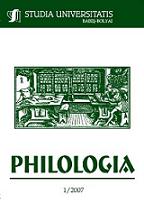Soap Operas Vs. Telenovelas
Soap Operas Vs. Telenovelas
Author(s): Mihai M. ZdrengheaSubject(s): Cultural Essay, Political Essay, Societal Essay
Published by: Studia Universitatis Babes-Bolyai
Keywords: Soap Operas; Telenovelas
Summary/Abstract: Soap operas are of two basic narrative types: open soap operas, in which there is no end point toward which the action of the narrative moves; and closed soap operas (or telenovelas), in which, no matter how attenuated the process, the narrative does eventually close. These telenovelas are broadcast nightly and may stretch over three or four months and hundreds of epiodes. They are, however, designed eventually to end, and it is the anticipation of closure in both the design and reception of the closed soap opera that makes it fundamentally different from the open form. In the United States, at least, the term soap opera has never been value neutral. The term itself signals an aesthetic and cultural incongruity: the events of everyday life elevated to the subject matter of an operatic form. The soap opera always has been a woman’s genre and it has frequently been assumed (mainly by those who have never watched soap operas) of interest primarily or exclusively to uncultured working-class women with simple tastes and limited capacities. Despite the fact that the soap opera is demonstrably one of the most narratively complex genres of television drama whose enjoyment requires considerable knowledge by its viewers, and despite the fact that its appeals for half a century have cut across social and demographic categories, the term continues to carry this sexist and classist baggage. Producers, and apologists for soaps, point out that they provide an educational and public service. In what follows we will try to see whether this is the case.
Journal: Studia Universitatis Babes-Bolyai - Philologia
- Issue Year: 52/2007
- Issue No: 1
- Page Range: 165-176
- Page Count: 12
- Language: English

